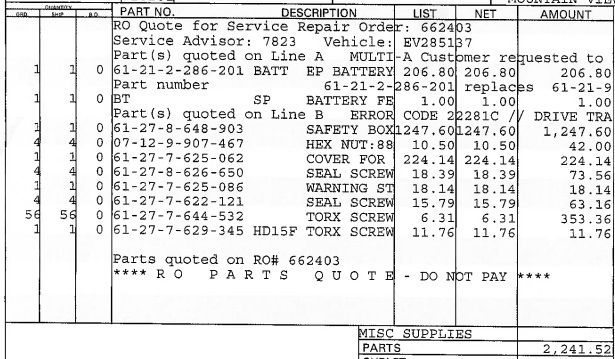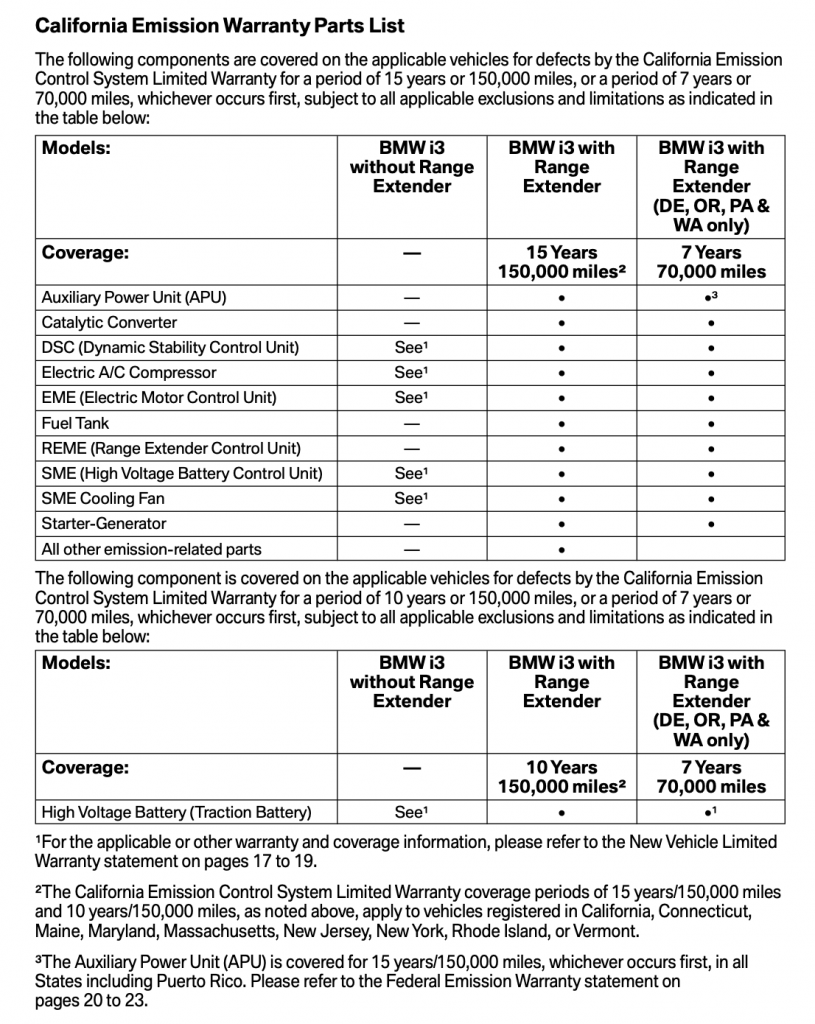YKK said:
agzand said:
I think 10 year warranty is for REX models. BEV models get 8 years warranty.
I'm seeing a lot of mixed information about this. For California specifically I think EV's are 10yr/150k but I don't know when that law went into effect? The REX vs. BEV difference is something related to CARB I believe which is also relevant in California but several other states follow it as well. This all based off a few quick google searches so not sure what's actually applicable.
Everything I've seen is that the BEV is 8yrs/100k miles due to federal law. You're right California has additional coverage due to emissions, but that only applies to PZEVs, so only the REX is covered.
This guy's story includes a similar situation trying to figure out the warranty, but he has a REX so unfortunately for you, his success doesn't help you:
https://www.theautopian.com/i-bought-a-high-mileage-electric-car-with-a-bad-battery-heres-why-that-was-actually-a-stroke-of-genius/
Here's a relevant warranty screenshot from that site, which is also page 28 in the full 2014 service and warranty documentation here: https://f01.justanswer.com/GTR_TECH/c7dce81c-ad7e-4273-9603-4da89d5b0eaf_2014-BMW-i3-Service-Warranty-Information.pdf
Unfortunately, you'd be in the left column, which sends you to footnote 1 which sends you to pages 17-19 which have nothing specific to California and just list the 8yr/100k miles.
As far as trying to repair vs. sell it, I don't have much to offer. Seems like the asking price on Ebay for a 60ah battery is about $3-4k so I'd assume the whole car is worth more than that even non-driveable. FWIW, I recently helped sell a (non-ev) car to Carmax for $9k that cargurus offered $7.5k for, so I think a running i3 should be worth more than what they're estimating, especially with some desirable options.






